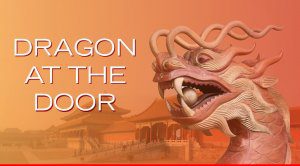 The Chinese Communist Party is moving backwards on liberalization and human rights, writes David Kilgour.
The Chinese Communist Party is moving backwards on liberalization and human rights, writes David Kilgour.
By David Kilgour, Dec. 15, 2017
By the mid-20th century, some thought communism would replace democracy and the rule of law as the dominant political ideology worldwide. Today, mercifully, probably only five authentically communist governments remain, co-existing with about 188 other nations – a majority with democratic governance of widely differing varieties. The five are China, Cuba, Laos, North Korea and Vietnam. The focus here will be China.
Let me begin with a confession. As a student here in Paris in the late ‘60s, I was actually an admirer of Mao. I read his Little Red Book. He seemed kind in that famous photo, swimming in the Yangtze River. Most historians today, however, rightly name him – alongside Stalin and Hitler – as the worst mass murderers of the 20th century.
Many governance problems in China today stem from the fusion of Mao’s totalitarianism and his successor Deng Xiaoping’s economic reforms. “Crony capitalism,” violence and corruption are the system in China today.
The recent 19th Party Congress indicated how far President/General Secretary of the Party/Chairman of the Central Military Commission Xi Jinping has taken China backwards in terms of political and economic liberalization. He has moved significantly from one-party government towards one-person rule. Is it a return to an earlier emperor period? The new leadership comprises six men all over 60 years of age, which means Xi has avoided anointing a clear successor since none will be eligible for a two-term presidency from 2022 under current retirement rules. He might also break with convention to hold onto power beyond his second term.
Key decisions were made in advance as controls on civil society were tightened. While Xi urges a disciplinary state with enormous security, surveillance and punishment capabilities, and simultaneously represses market forces and social freedoms, he could discover that a concentration of power with no checks and balances will backfire.
Xi urges a disciplinary state with enormous security, surveillance and punishment capabilities.
Nathan Vanderklippe of Canada’s Globe and Mail notes that the Party’s Xinhua News agency “ridicules western systems as ‘doddering’ and marked by ‘endless political backbiting, bickering and policy reversals’ that have ‘retarded economic and social progress and ignored the interests of most citizens.’” As he goes on to say, we can foresee what can be called “digital authoritarianism,” which entails enforcing “among the population – and certainly among the cadres – conformity, because you know everything that they do, you know everything that they say. Marxism or Maoism with IT has never been tried before.”
Chinese repression has been particularly evident on the members of Falun Gong. In 2006, the Coalition to Investigate the Persecution of Falun Gong in China (CIPFG) asked David Matas and me as volunteers to investigate persistent claims of organ pillaging/trafficking from Falun Gong practitioners. We released two reports and a book, Bloody Harvest, and have continued to investigate (Our revised report is accessible in 18 languages.) We determined that for 41,500 transplants done in the years 2000-2005 in China, the sourcing beyond any reasonable doubt was Falun Gong prisoners of conscience.
Our main conclusion is that there “continues today to be large-scale organ seizures from unwilling Falun Gong practitioners (…) Their vital organs, including kidneys, livers, corneas and hearts, were seized involuntarily for sale at high prices, sometimes to foreigners, who normally face long waits for voluntary donations of such organs in their home countries”.
A Nobel Peace Prize nominee and co-founder of the International Coalition to end Organ Pillaging in China, Ethan Gutmann’s 2014 book, The Slaughter, places the persecution of the Falun Gong, Tibetan, Uyghur, and house Christian communities in context. He explains how he arrived at his “best estimate” that organs of 65,000 Falun Gong and “two to four thousand” Uyghurs, Tibetans and House Christians were “harvested” in the 2000- 2008 period.
Inmates make a range of export products as subcontractors to multinational companies.
David Matas and I visited about a dozen countries to interview Falun Gong practitioners who had managed to escape both the labour camps and the country. They told us of working in appalling conditions for up to sixteen hours daily in these camps with no pay and little food, crowded sleeping conditions and torture. Inmates make a range of export products as subcontractors to multinational companies, including Christmas decorations and McDonalds’ restaurants toys. This constitutes gross corporate irresponsibility and a violation of WTO rules; it calls for an effective response by all trading partners of China.
Governments, investors and business people should examine why they are supporting the violation of so many basic human rights in order to increase trade and investment with China. This has resulted mostly in national jobs being outsourced to China and continuous increases in bi-lateral trade and investment deficits. Are we so focused on access to inexpensive consumer goods and a potential large market that we ignore the human, social and natural environment costs paid by abused Chinese nationals to produce them? Consumers in many countries create much of the wealth in China, while its state-owned enterprises and spies ignore intellectual property laws and copy everything from small appliances to civilian and military aircraft.
Chinese citizens seek safety and security, the rule of law, respect, education, good jobs, accountable governance and a good natural environment. The party state in Beijing should support these aspirations.
David Kilgour (www.david-kilgour.com), a lawyer by profession, served in Canada’s House of Commons for almost 27 years. In Jean Chretien’s Cabinet, he was secretary of state (Africa and Latin America) and secretary of state (Asia-Pacific).




